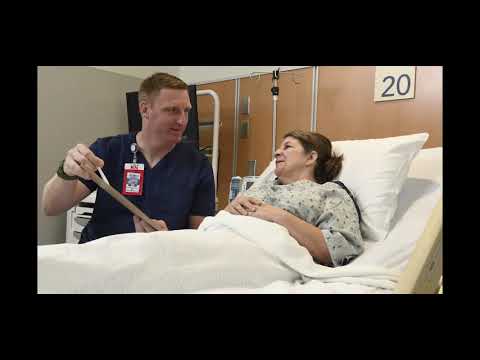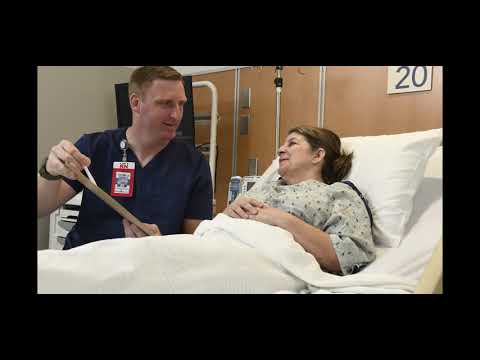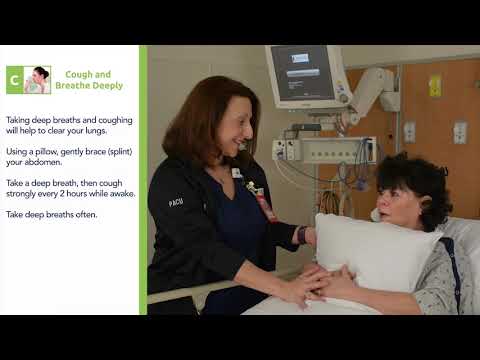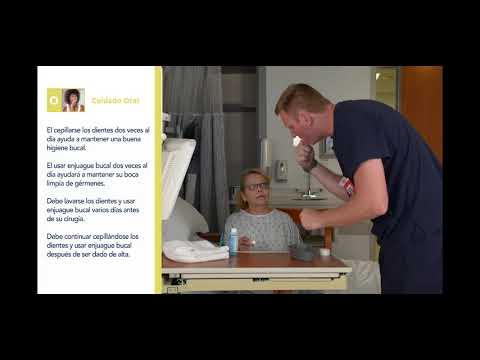Opened in 2016, this facility for comprehensive surgical and patient care provides an unparalleled patient experience in one of the most technologically advanced healthcare centers in the region.
HealthPlex Features
- Surgery
- Hybrid Operating Suites – Six hybrid-capable operating suites integrate state-of-the-art imaging equipment into the operating room.
- Operating Suites – Eighteen cutting-edge surgical suites provide unparalleled access to the latest technology and procedures for superior clinical outcomes.
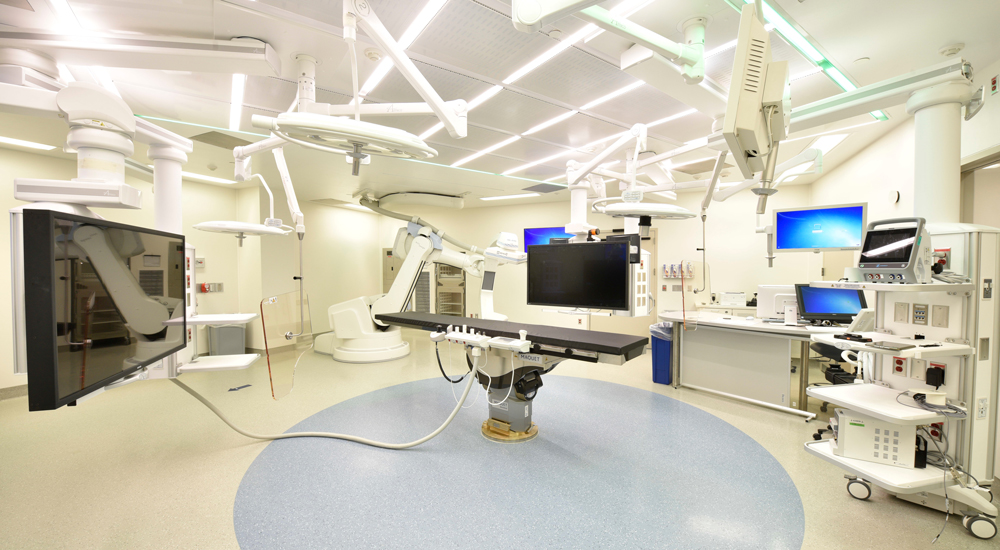
- Procedure Rooms – Patients who are having the following procedures are treated in the procedure rooms: endoscopy, pain management, stereotactic breast biopsy, and lithotripsy.
- Trauma Center – Three additional trauma bays provide our growing community with immediate and specialized care for critically ill and injured patients.
- Emergency Department
- Expansion – Reading Health has one of the most active emergency departments in the country. The expansion increased the size of the Emergency Department by 17,500 square feet.
- Patient Rooms – Sixteen new private patient rooms replace curtains, emphasizing dignity and patient safety. Each room is equipped with flat-screen TV’s, interactive GetWellNetwork access, and telephones to help families stay in touch.
- Cardiac Decision Units (CDU) – Patients with potential heart issues are initially evaluated in the Emergency Department and transferred to the CDU, a dedicated area where patients with cardiac conditions receive assessment and specialized care.
- Psychiatric Evaluation Center – The evaluation area provides 10 private rooms and additional space for consultation with specialists for patients who are experiencing a mental health or emotional crisis.
- CT Scanner – The expanded department will house an ultramodern 64-slice CT scanner for advanced imaging for traumatic injuries, stroke, and other potentially life-threatening conditions.
- Green Roof – The 88,000-square-foot Green Roof is the largest in Pennsylvania and third-largest in the U.S. on a healthcare building. In keeping with our focus on innovative ways to protect the planet, the roof saves energy by providing greater insulation, while offering a more therapeutic environment for patients.
- Healing Garden – This area provides a place of relaxation and promote healing for patients, families, and staff.
- Patient Floors – The tower features five patient floors with 30 private patient rooms on each floor designed for maximum comfort and healing.
- Helipad – The top of the facility features a helipad for an effective means of transporting emergency patients.
- Reading HealthPlex Video Transcript
Slide 1: Welcome to the Reading Healthplex We are a Magnet hospital and voted Top Performer on Key Quality Measures for Surgical Care. We are here to make you comfortable and at ease. While you are in the hospital, your entire healthcare team will focus on keeping you safe. It is normal to feel nervous about surgery. It may help to know that your surgical team is very experienced and will make sure all your needs are met.
Slide 2: On the day of your surgery report to the 7th Avenue main lobby entrance. Valet parking is available for your convenience. You may also park your own car. The lot you will use is the 7th avenue lot located across from the entrance to the healthplex.
Slide 3: When you enter the lobby, there is a reception desk to the left. This is where your family will get a visitor’s pass. This pass must be worn at all times while inside the hospital. Visitors’ passes are used to provide a safe environment for you, your family, and the hospital staff.
Slide 4: There is a comfortable seating area in the lobby. Your family may wait here until your surgery is over. If they need a snack they can visit the Healthplex Café. There are made to order sandwiches, soup, yogurt, coffee, and other cold drinks. The cafe opens daily at 6:30 AM.
Slide 5: Your first stop will be the registration desk. This desk is located to the right when you enter the lobby. The registration clerk will ask you your name and birthday. If you still owe any part of your health care cost, you will be asked to pay it at this time. The clerk will give you a form to complete. This form will tell your health care team who to contact when your surgery is over.
Slide 6: After signing in you will be directed to the surgery family waiting room. This bright, open room has comfortable seating and big screen TVs. There is also a patio area that can be used to get some fresh air while waiting. You will wait here until it is time to get ready for surgery. Someone will come to the waiting room and escort you to the prep and recovery unit. You might wonder why you had to arrive early for surgery. Our staff works as quickly as possible but getting someone ready for surgery takes time. We want to make sure all the information we have about you is correct and your questions have been answered.
Slide 7: A member of your health care team will escort you to a private room. Your family is welcome to join you. You will change into a patient gown and remove all under garments. If you get cold we have warm blankets. You will need to remove all jewelry but you can keep your contact lenses, dentures and hearing aids in until it is time to leave for surgery. If you are a female of childbearing age and have not had your uterus or both ovaries removed, you will be asked to provide a urine specimen. It is the hospital’s policy to check for pregnancy before going to the operating room. A member of your health care team will check your blood pressure, pulse, and temperature.
Slide 8: When you are settled in bed a nurse will continue to prepare you for surgery. You may be asked the same questions you have already answered. This may be very frustrating. We ask the same questions at every stage of surgery for your safety. This is an important part of the hospital’s safety check. Your nurse will also review your health history and any medicine you are taking. We want to make sure all the information in your chart is current and correct. Our expert staff will place a small flexible tubing or IV into a vein in your hand or arm. They will try to make this as quick and pain free as possible. This tube will be used to give you fluids and medicine during and after surgery. A member of your health care team will also remove any hair from your surgical site. An electric clipper will be used. This is done to lower the risk of infection.
Slide 9: We try to start all surgeries on time. Some surgeries may start late because of unexpected events. If that happens, our surgical nurse liaison will check on you frequently and give you updates. If you need anything during this time, please ask a member of your health care team. We are here to make you as comfortable as possible. To pass the time there are televisions in every room. There is also music available. Your family may wait with you until it is time to go for surgery.
Slide 10: A member of your anesthesia team will visit you before going to the operating room. This is a good time to ask any questions about your anesthesia plan. When you are in the operating room your anesthesia team is responsible for giving you medicine to put you to sleep. They will stay with you while you are sleeping. Your anesthesia team will also watch your breathing and check your blood pressure and heart rate often during your surgery.
Slide 11: It is time to go to the operating room. Members of your surgical team will come to your room. The operating room nurse will ask your name, check your bracelet, and ask what type of surgery you are having and who is doing your surgery. It is time to say goodbye to your family. Someone from your health care team will take your family to the waiting room. They can watch television, read a book, or have a snack. If your family will not be in the waiting room, your nurse will make sure their contact phone number is correct. We will use this number to contact them after your surgery is over. We can also text your family when you arrive in the postanesthesia care unit.
Slide 12: Your nurse will take you down the hall to the operating room. It is only a short distance away. When you enter the operating room, the rest of your surgical team will be waiting. They will be wearing masks, gowns, and caps for your protection. You will see strange equipment in the room. You may also hear unusual sounds caused by your team preparing instruments needed for your surgery. You will be asked to move over on to the operating room table. If you need help the staff is here to assist you. Our goal is to make you as comfortable as possible.
Slide 13: When you are on the operating room table, the team will ask you to place your arms or legs in certain positions for your comfort. Straps will be placed loosely across your upper legs for your safety. We will monitor your blood pressure, heart and oxygen levels during surgery. A member of your anesthesia team will be at your head. They will remain with you during your surgery. The anesthesia team will give you medicine through your IV. This medicine will make you sleep for your surgery, so you will not feel any discomfort. A breathing tube may be placed in your throat to help you breathe while you are asleep. When you wake up, after your surgery is over, you may have a sore throat. This soreness will get better in a day or two.
Slide 14: When your surgery is done you will be tired. Your surgical team will help you back on to your bed. You will be taken to the recovery room. Plan on being in the recovery room for about two hours. During this time, you will be cared for by specially trained registered nurses. The registered nurses will monitor your heart, oxygen levels and blood pressure every 15 minutes. You may be given extra oxygen through a mask on your face or through your nose. Taking deep breaths and coughing will help your lungs inflate and allow extra anesthesia to be removed more quickly. If you are having discomfort or nausea, please tell your nurse. Medication can be given to help you feel better. While some pain is normal after surgery, our goal is to keep you as comfortable as possible. While you are in the recovery room your surgeon will call the person you listed to be contacted. Your surgeon will tell them how you did during the surgery and answer any questions.
Slide 15: Some people go home after surgery and others will need to stay in the hospital. When you are awake your PACU nurse will call someone to pick you up. You will be taken back to prep and recovery if you are going home. If you need to stay in the hospital you will be taken to your hospital room.
Slide 16: If you are going home, you will be taken back to prep and recovery. If your family is waiting they will be brought back to your room. Your healthcare team will check your blood pressure and heart one more time. You will be offered something to drink. When you are comfortable and it is safe for you to leave the nurse will assist you to dress. You will be asked to sit in a wheelchair and the plastic tube will be removed from your arm. Your nurse will go over instructions to follow when you go home. You will be given a copy of these instructions. If you have any questions about the instructions your nurse will gladly answer them. It is important that you understand and follow your instructions so you have a safe recovery. Your family will be asked to get the car and wait outside of the healthplex entrance. Since you had anesthesia you will not be able to drive. A registered nurse or nurse aid will push you in the wheelchair to your car. If you have any questions or concerns after you go home, contact your surgeon’s office. The surgeon’s phone number is on your instruction sheet.
Slide 17: If you are staying in the hospital you will be taken to your room. Your family will be told what room you will be in so they can meet you there. A surgical nurse will check your blood pressure, heart, and lungs. They will ask you if you are having any discomfort or nausea. If you have discomfort or nausea, the nurse will give you medication to make you feel better. After surgery it is important for you to get out of bed and walk as soon as possible. Remember to ask a member of your healthcare team to help you. Continuing to take deep breaths is also important to prevent lung problems after surgery. Your doctor will check on you every day until it is safe for you to go home.
Slide 18: Your surgical team’s goal is to keep you safe and provide you with excellent care. Thank you for selecting Reading Hospital for your surgery.
- ICOUGH Video Transcript
The ICOUGH program incorporates multiple interventions that have been shown to decrease postoperative pneumonia. ICOUGH stands for:
I- Incentive Spirometer Exercises
C- Cough and Breathe Deeply
O- Oral Care
U- Understand ICOUGH Practices
G- Get Out of Bed and Walk the Hallway
H- Head of Bed Elevation
Deep breathing exercises will help keep your lungs healthy. Place your mouth on the mouthpiece and seal your lips around it. Breathe in (inhale) slowly and deeply. Remove your mouth from the mouthpiece and breathe out (exhale). Do this 10 times each hour while you are awake.
Taking deep breaths and coughing will help to clear your lungs. Using a pillow, gently brace (splint) your abdomen. Take a deep breath, then cough strongly every two hours while awake. Take deep breaths often.
Brushing your teeth twice a day aids in good oral hygiene. Using mouthwash twice daily will help keep your mouth clean from germs. You should brush your teeth and use mouthwash several days before your surgery. You should continue to brush your teeth and use mouthwash after you are discharged from the hospital.
It's important for you and your family to take an active part in your recovery from surgery. Please ask questions if there is anything that is confusing, or you do not understand. We want your pain to be well managed. Well-managed pain will allow you to take deep breaths, cough, do your breathing exercises, and get out of bed to sit in a chair or walk the hallways. Ask for pain medication as needed.
Getting out of bed and walking at least three times per day will help your recovery after surgery and help prevent complications. Walking will help clear your secretions from your lungs and improve your circulation so that you may regain your strength. It is important to get out of bed with assistance as needed.
It is important to keep the head of your bed elevated 30-45 degrees. Being in an upright position after surgery will help your breathing.
The key to a successful postoperative course is ensuring that your pain is well managed. This will allow you to participate in the ICOUGH interventions. Discuss with your care team if your pain is not acceptable. We look forward to caring for you. How well you do is up to you.

